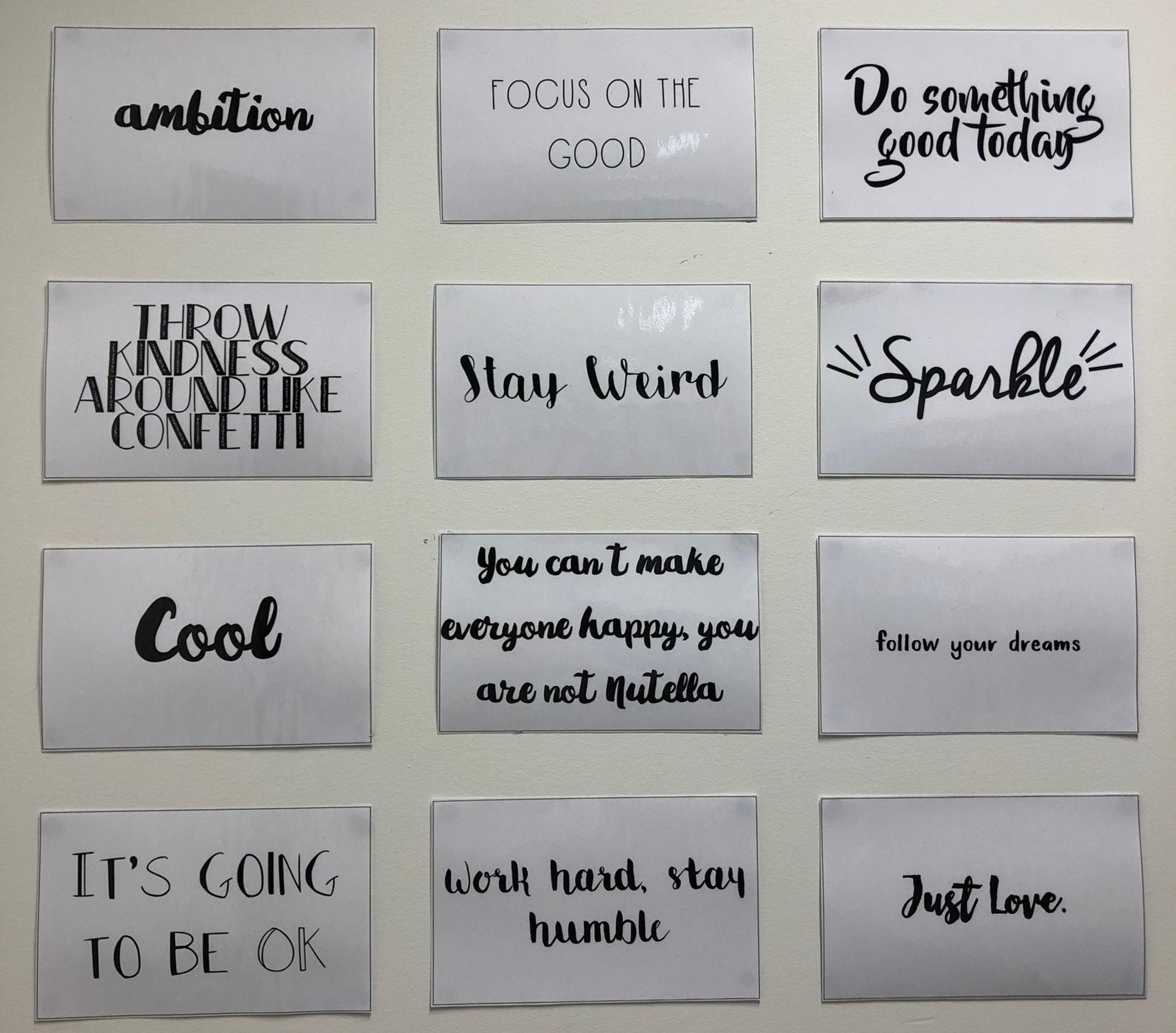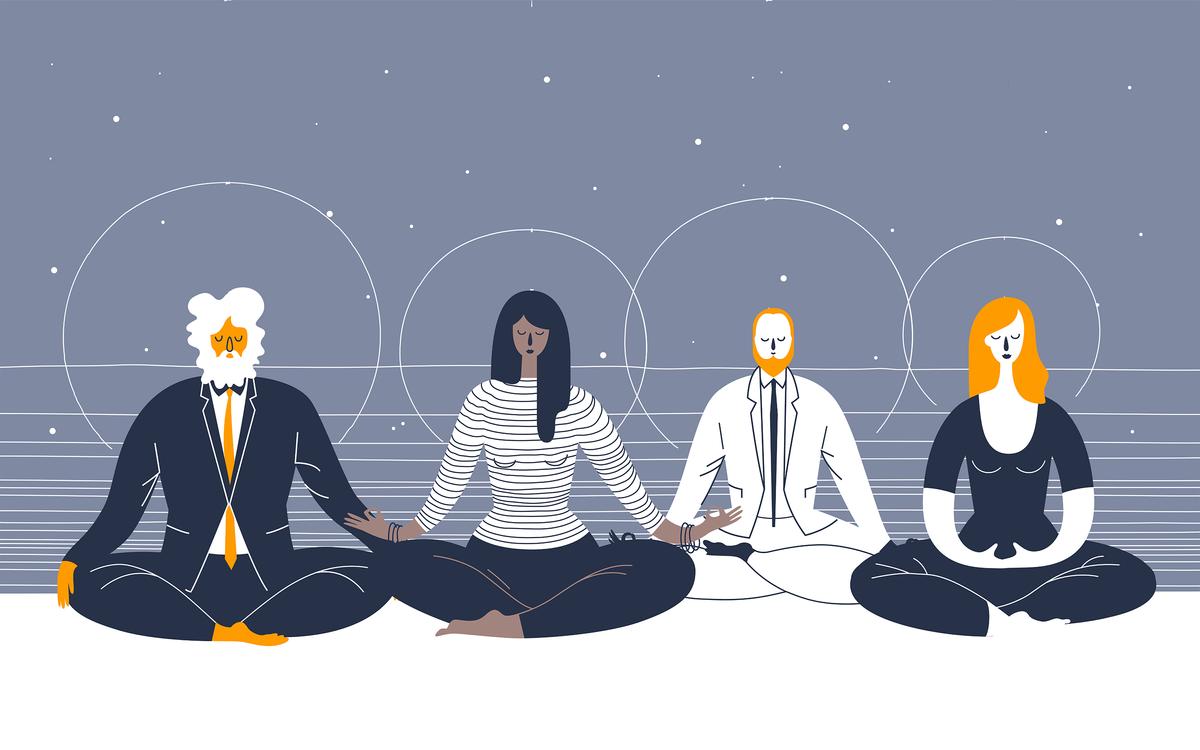WELLBEING

Mindfulness
What is mindfulness?
Mindfulness is a form of self-awareness training adapted from Buddhist mindfulness meditation. Mindfulness is about being in the present moment, without making judgment. It allows us to experience our body and feelings in each moment with acceptance, and helps free us of mental ‘clutter’.
When we are being mindful, we simply allow our thoughts to come and go. We don’t need to question or judge what’s happening in our thoughts. If we can cultivate this ability to observe our thoughts as simply thoughts without ‘buying in’ to them, we can free ourselves of our tendency to overthink and be critical of ourselves and others.
How does mindfulness help us?
Our lives are so fast and full of stresses and distractions, it’s easy to run on autopilot (mindlessly) and become agitated by all the conflicting thoughts and buzz in our heads.
Mindfulness helps us stop getting caught up in thinking about the past or worrying about the future.
It helps us slow down and be in the ‘now’.
Mindfulness can change the way our brain and nervous system function. It can allow our parasympathetic nervous system to take over and place us in a state of rest, healing and restoration. When people practice mindfulness, they are able to achieve lasting positive changes to their wellbeing.
Mindfulness can help improve:
- our concentration
- our relationship
- how we feel pain emotionally and physically
- how we deal with our problems
- our clarity – without all the negative thoughts cluttering our head, assisting decision making and higher order thinking.
Other benefits of mindfulness
Regular practice of mindfulness can:
- increase positivity and how happy we feel about life
- help us manage stress
- increase brain function – improving memory and creativity
- Improve how well we get along with others.
It can also:
- be useful in helping many health conditions that arise due to stress like anxiety and depression
- slow down ‘hyper-vigilance’, where we’re constantly stressed and ‘on guard’ for danger
- Stop us dwelling on negative thought patterns about ourselves and others.
Ways you can start being mindful in everyday life
The key to increasing mindfulness is to keep trying. It can be tricky when you first begin. The more you practice mindfulness the easier it becomes and the more benefits are felt.
Try mindfulness meditation
There are thousands of guided examples online and apps built just for this.
Just breathe
We can use our breath as an ‘anchor’ for our emotions. Try this for a few minutes each day:
- find a quiet space
- spend a few minutes noticing your breathing
- feel your breath entering and leaving your nostrils
- feel the rise and fall of your belly as you breathe.
Body scan meditation
- find a quiet and comfortable space. Start with your breath as a focus, and then slowly move through each part of your body starting with the tips of your toes, paying particular attention to the way it feels and whether there’s any tension there.
- take some breaths, and feel the muscles in that area relax.
- move onto the next part of your body until you work all the way up to your facial muscles and the top of your head.
- it’s an excellent way to enter a deeply relaxed state.
Have a walk outside
This is a good one to do on a quick lunch break.
- take time to notice aspects of a place in detail.
- feel the sensation of your feet as they strike the ground.
- feel the air on your skin.
- take some deep breaths.
- notice the smell of the grass or people’s lunches. Look at the way a tree bends, notice something beautiful like the shimmer of water in a puddle or lake, notice the sounds of your surroundings.
- try to stay in the present. Let other thoughts go and enjoy this moment.
Be outside and close your eyes
- sit outside in the evening and simply close your eyes.
- notice the smells and sounds of your surroundings. Enjoy the beauty and feeling of taking this time out to just ‘be.’
- recognise that thoughts are just thoughts – you don’t need to react to them.
Remember the good times
- remember positive things that happened in your day, or recall a good memory when something great happened or you were appreciated for something.
- remember what it was like, the weather, the sounds, smells, the songs that were playing, how you were feeling – happy, proud, excited, calm or intense.
- take some full breaths as you remember the scene and how you felt at the time.
Savour the moment
- savouring gives deliberate and conscious attention to pleasure and enjoyment. You might like to share an enjoyable experience with someone else. Tell them how much you’re enjoying it.
- listen to your favourite music. To sharpen your perception, close your eyes and savour the experience. Allow yourself to become completely absorbed.
Resourced from Black Dog Institute.

